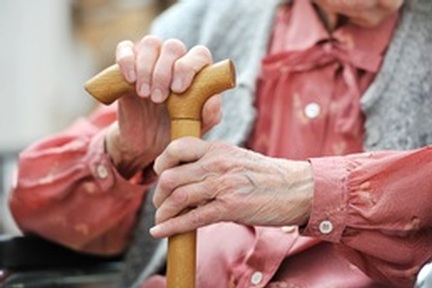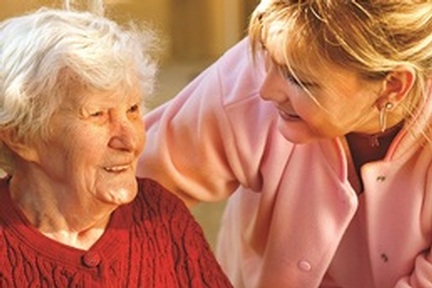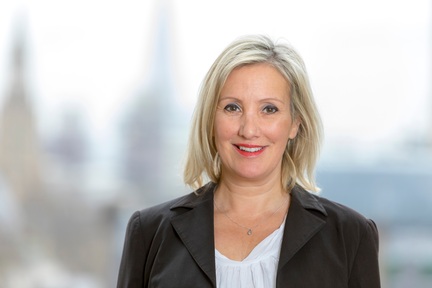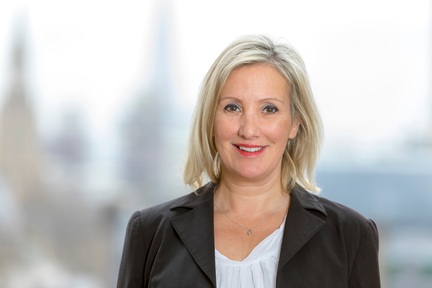Care home sector 'needs a strong whistleblowing culture'
The charity Protect is campaigning for care home managers and owners to adopt a strong whistleblowing culture in their homes to benefit residents, staff and the business itself.

The care regulator, Care Quality Commission, says almost one in four care homes are inadequate or require improvement, while Age UK says 1.2 million people over 65 had some level of unmet care needs in 2016-17.
Protect, formerly Public Concern at Work, are leading experts in whistleblowing. For the past 25 years, Protect has been helping whistleblowers safely raise concerns about their workplace and helps individuals who have witnessed wrongdoing, abuse or poor practice but are unsure how to go about raising these issues. The charity also works with organisations including care homes instil strong, accessible whistleblowing cultures, and we carry out training, consultancy and organisational reviews when things have gone wrong.
Head of policy at Protect, Andrew Pepper-Parsons said, “We receive around 400 annual calls to our whistleblowing advice line from the care sector and, we suspect, this is just scratching the surface of the problems facing care homes.
“Staff are the eyes and ears of an organisation and can act as an early warning system. It makes total business sense for care homes to have in place a whistleblowing framework where staff are 100% clear on what to do if they have come across a concern and managers know how to handle and investigate these concerns.”
Our advice line receives about 2,500 calls a year, and its findings should worry anyone working in senior management in the care home sector:
• Care staff are often left unsupported by their employer, with one in three saying their whistleblowing concerns – often a safeguarding or patient safety issue – were ignored.
• More than half of whistleblowers also reported some kind of victimisation, with 23% saying they have been dismissed after raising concerns.
In a survey conducted earlier this year, Protect asked care home workers ranging from managers, care home owners, to care workers if they felt enough was being done to support whistleblowing in the care industry. Whilst a few said, yes, the majority disagreed and had the following recommendations:
• A CQC inspector designated for each home who is responsible for raising whistleblowing issues from staff members and monitoring their resolution and spot checking that they do not recur.
• Improved protection for the person raising the concern, better training for managers to enable them to deal with concerns, to be believed and listened to. Reduce the clique culture in care homes, for professional status for care workers, transparency, to be informed of the outcome, to ensure managers refrain from “circling the wagons” and to sweep concerns under the carpet.
• There needs to be a CQC to keep a check on the CQC, inspections are hit and miss and falsified documents go unnoticed, and the night team do not exist. "I mean, who cares for residents from 8pm until 8am? No one seems to concern themselves with our conduct or performance, if I was an area manager that would be my first task; seeing what really happens on the nightshift," said a care worker.
• The sector needs a strong drive to empower and support staff to whistle blow and not fear recrimination. Training to encourage this is needed for all working in care.
• Anonymity and support for the whistleblower, otherwise management and staff can ostracise the whistleblower.
• More protection for whistleblowers. A care worker said: "I recently had to go to board members to whistle blow. I am experiencing reprisals for this as I have been suspended and have threats of disciplinary and dismissal hanging over me. Of course they won’t admit this is because I made a protected disclosure but I know that is the case. I am worried about my future career now and this has caused me severe stress. However I would whistle blow again if I had to as client care and safe practice must come first. It’s very sad that whistle blowers are seen as a problem."
There are clearly some challenging issues for the care sector to tackle when it comes to whistleblowing. The sector as a whole, from policy makers to care home owners, should consider the following policy responses:
• A framework that assists care providers with their whistleblowing arrangements that meet a minimum set of standards. To this end Protect have launched a benchmarking product – our 360° Benchmark - that will assist organisations in creating, implementing and monitoring their whistleblowing arrangements and test their efficacy.
• Give regulators powers to withdraw licenses where companies have shown to fail for whistleblowing
• Consider the implementation of either board champions and/or whistleblowing guardians or ambassadors
Terry Bryan blew the whistle on hospital management who ignored his concerns over abuse
As a nurse with decades of experience, Terry Bryan was appalled by the abuse he witnessed at Winterbourne View, a hospital for people with learning difficulties.

After his concerns were ignored by management, he raised his claims with the Care Quality Commission. In what the CQC described as an “unforgivable error of judgement”, no action was taken.
Terry Bryan then turned to BBC Panorama, whose show Undercover Care: The Abuse Exposed cast Winterbourne’s conditions into the limelight.
His whistleblowing led to six care workers being given prison sentences, and NHS England developing its 2011 “transforming care” agenda. The agenda aimed to reduce patient admissions to hospitals like Winterbourne.
Mr Bryan now works for Care Inspectorate Wales, using his experience to inspect care homes and nursing homes around South Wales. When asked if he would be prepared to blow the whistle again, it was an unequivocal yes.
“It’s about following your conscience,” he says. “How would you live with yourself if you didn’t do it?”
To find out more about whistleblowing charity Protect, go to www.protect-advice.org.uk
Latest Opinion News
 27-Sep-19
Comedian reveals complexities of performing for people with dementia
27-Sep-19
Comedian reveals complexities of performing for people with dementia
 23-Jul-19
Care home residents go wild for 30 days making daisy chains and counting bees
23-Jul-19
Care home residents go wild for 30 days making daisy chains and counting bees
 02-Jul-19
National festival to celebrate care workers
02-Jul-19
National festival to celebrate care workers
 24-Jun-19
Exclusive: Care Minister Caroline Dinenage tells care homes 'loneliness is everyone's business'
24-Jun-19
Exclusive: Care Minister Caroline Dinenage tells care homes 'loneliness is everyone's business'
 16-Apr-19
Exclusive: Care Minister Caroline Dinenage on EU care workers' rights after Brexit
16-Apr-19
Exclusive: Care Minister Caroline Dinenage on EU care workers' rights after Brexit